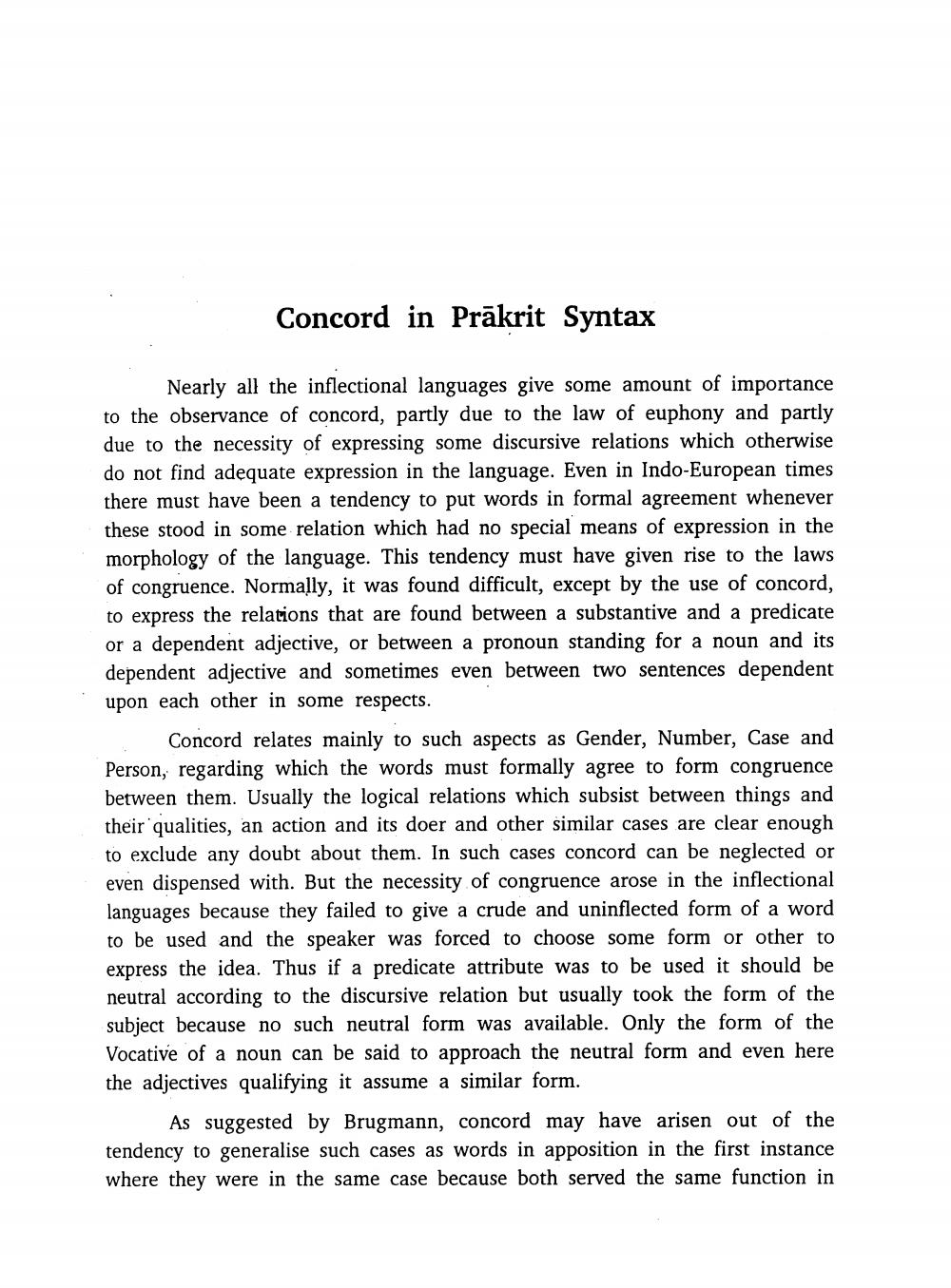________________
Concord in Prākrit Syntax
Nearly all the inflectional languages give some amount of importance to the observance of concord, partly due to the law of euphony and partly due to the necessity of expressing some discursive relations which otherwise do not find adequate expression in the language. Even in Indo-European times there must have been a tendency to put words in formal agreement whenever these stood in some relation which had no special means of expression in the morphology of the language. This tendency must have given rise to the laws of congruence. Normally, it was found difficult, except by the use of concord, to express the relations that are found between a substantive and a predicate or a dependent adjective, or between a pronoun standing for a noun and its dependent adjective and sometimes even between two sentences dependent upon each other in some respects.
Concord relates mainly to such aspects as Gender, Number, Case and Person, regarding which the words must formally agree to form congruence between them. Usually the logical relations which subsist between things and their qualities, an action and its doer and other similar cases are clear enough to exclude any doubt about them. In such cases concord can be neglected or even dispensed with. But the necessity of congruence arose in the inflectional languages because they failed to give a crude and uninflected form of a word to be used and the speaker was forced to choose some form or other to express the idea. Thus if a predicate attribute was to be used it should be neutral according to the discursive relation but usually took the form of the subject because no such neutral form was available. Only the form of the Vocative of a noun can be said to approach the neutral form and even here the adjectives qualifying it assume a similar form.
As suggested by Brugmann, concord may have arisen out of the tendency to generalise such cases as words in apposition in the first instance where they were in the same case because both served the same function in




